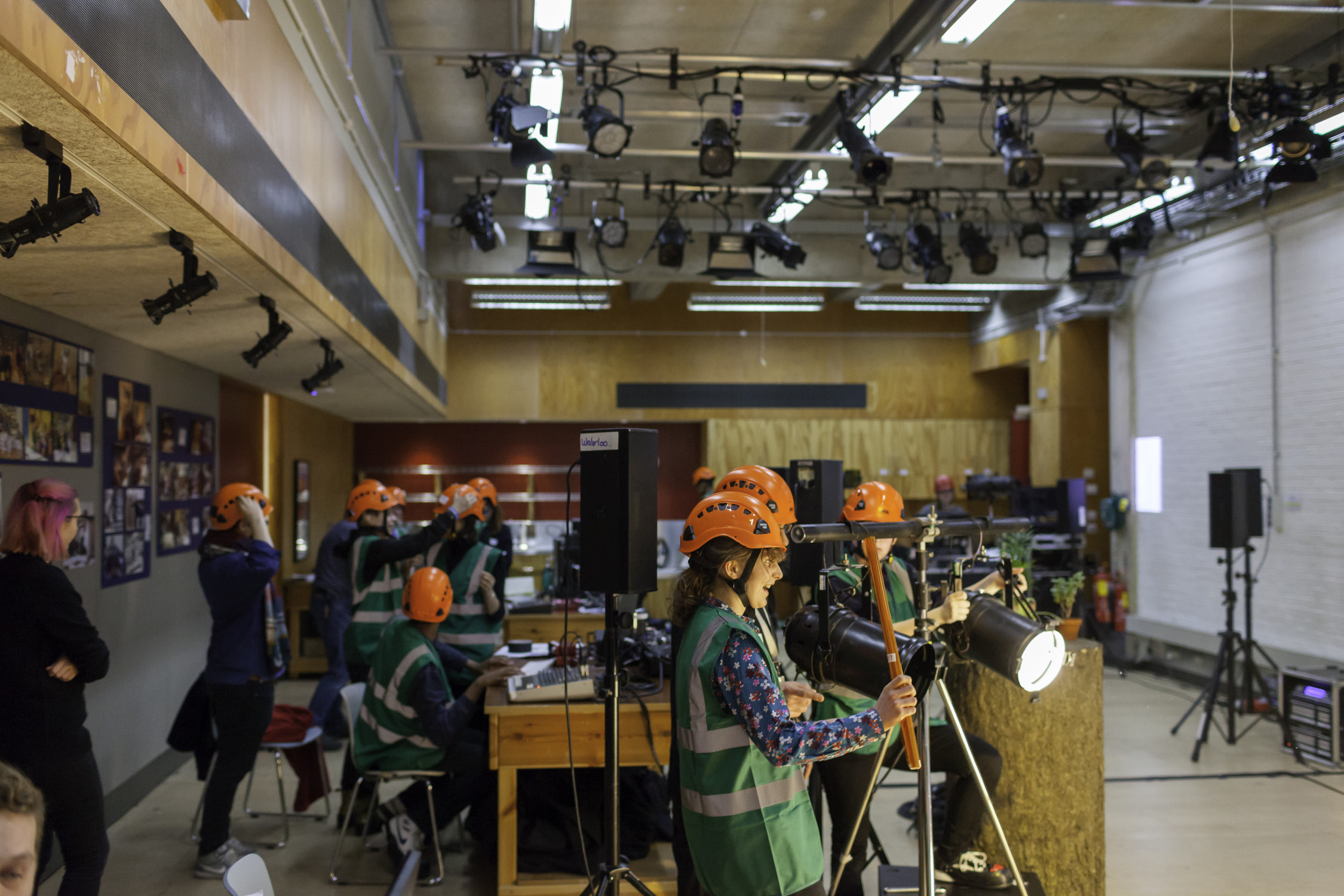Don’t ignore apprenticeships as a viable alternative route to a creative career. Susan Elkin looks at several providers and chats to recent participants.
You’re 18 or so and you desperately want to work in theatre – not as an actor, but as a backstage creative. So should you go to drama school or university for a two year foundation degree or a full three year BA and come out with a few placements behind you and debts of up to £50k? Or do you train on the job, get for-real professional experience every day, do your theory on day-release and earn a modest salary as you go? Bit of a no brainer.
Apprenticeships seem to be the way forward and their growth is something we should be making school leavers aware of. It is, as long as you can find a provider where you need it, now perfectly possible to train as, say, a lighting engineer or a costume maker and gain the necessary qualifications without going to college.
Take Priya who attended what she describes as a “posh Church of England” all girls’ school in West London. “Engineering simply wasn’t mentioned as a career option and they axed Design and Technology the year after I left” she recalls ruefully. “I found A levels very stressful because the coursework I’d done for GCSE suited me better, so I gave it up after a year and went to college to do a BTEC. Then went to Royal Opera House in Covent Garden as a stage engineering apprentice. It was two-year paid training during which I learned about scenery movement, traps, platforms, hydraulics and so on both at ROH itself and elsewhere on placements.”
Now in her mid-twenties and working freelance, Priya has worked at National Theatre, Arts Ed, Opera Holland Park and other venues and reports that the work is “quite well paid”. She is also a great advocate of practical based learning, getting dirty, being paid to learn and doing it all in the specific industry you want to work in.
Laura, also in her mid-twenties, agrees. She did her stage carpentry apprenticeship at National Theatre in 2015-17. “My cousin heard about it and suggested it to me after I’d done A level DT at school and a foundation course at Bournemouth” she says. “It’s vital to tell young people about these opportunities. I knew nothing about apprenticeships when I was in the sixth form because the schools simply don’t know either, which is why they’re not telling the students.”
Since completing her apprenticeship Laura as worked at Young Vic, Queens Theatre, Hampstead Theatre and as a teaching assistant at LAMDA. She has also freelanced back at the National Theatre, but was looking forward to starting a new staff job elsewhere the week after I spoke to her.
“Apprenticeships give you such valuable experience as well as qualifications”, adds Laura. “You’re in everyday contact with working professionals and involved with current shows. It seems a great deal more grown up than being in college.”
Apprenticeships are a government scheme (apprenticeships.gov.uk). Employers are supported by the government and there are rules and criteria which have to be adhered too. All apprentices (not just in theatre) should expect to work alongside experienced staff, gain job-specific skills, get a wage and holiday pay be granted at least 20% of the working week to attend college for job-relevant theory training.
There are four levels: Intermediate (Level 2), Advanced (Level 3) Higher (Levels 4, 5, 6 and 7), Degree (Levels 6 and 7). Wages are dependent on age and pegged onto the National Minimum Wage. An eighteen-year-old school leaver apprentice, for example, is paid £6.15 per hour, which may not be a fortune but it is, arguably, preferable to incurring debt as you train.
Creative and Cultural Skills, (ccskills.org.uk/apprenticeships), part of the National Skills Academy, is a good source of information about apprenticeships in the cultural sector, how they work and where the opportunities are. Most of the big performing arts companies – RSC, National Theatre, Royal Opera House and the Barbican, for example – now have an apprenticeship scheme through which a number of young people are training at any one time, with the enthusiastic support of department heads. As do many smaller venues, such as Royal Exchange Manchester and Birmingham Repertory Theatre. And opportunities range from marketing, front of house and facilities management, to prop making and sound engineering. The National Theatre even has one in concrete management – and no, that’s not a metaphor. It really does mean learning to manage the maintenance of the grey stuff the building is made of!
apprenticeships.gov.uk
ccskills.org.uk/apprenticeships




No Comments
No comments yet.
Sorry, the comment form is closed at this time.